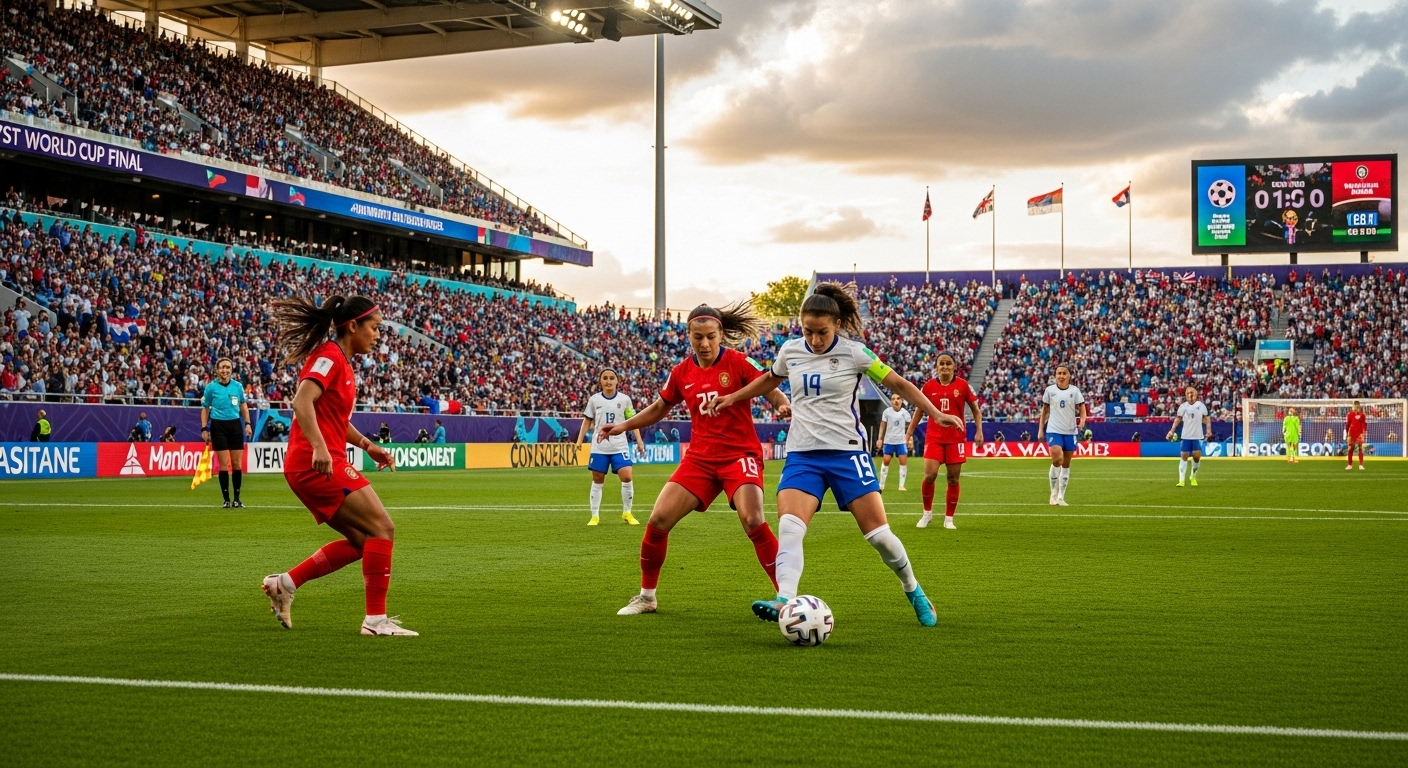Sports are often remembered for the athletes who dazzle crowds with their skill, strength, and determination. The spotlight usually shines on the champions, record-breakers, and legendary figures who define eras. Yet, behind every iconic game, there exists another group of individuals whose role is just as vital but often overlooked: referees. Referees, umpires, judges, and officials ensure that games are played fairly, rules are enforced, and the integrity of competition is maintained. Without them, organized sports as we know them would not exist.
The role of referees in sports history is fascinating, spanning from the earliest forms of competition to the modern age of technology-assisted officiating. Their journey has been marked by controversy, innovation, criticism, and respect. To truly appreciate sports, one must understand how referees have shaped its course, preserved fairness, and influenced iconic moments throughout history.
Origins of Refereeing in Ancient Sports
The origins of referees can be traced back to ancient civilizations where competitive games first emerged. In Ancient Greece, where the Olympic Games began in 776 BCE, judges known as hellanodikai were appointed to oversee competitions. Their duty was to ensure athletes followed rules, avoided cheating, and maintained fairness. Penalties were enforced for violations, showing that even in the earliest stages, referees were critical to preserving the spirit of competition.
In Roman gladiatorial contests, officials signaled the beginning and end of fights, judged outcomes, and occasionally intervened when combat threatened to spiral out of control. Similarly, in traditional Chinese martial arts competitions, referees ensured discipline and adherence to the code of conduct. These early roles highlight how officiating was embedded in the very fabric of competitive sport from the beginning.
The Birth of Modern Refereeing
Modern refereeing developed alongside the codification of sports in the 19th century. As organized sports became more popular, clear rules and impartial officials became necessary.
In football (soccer), the first referees emerged when disputes between teams needed resolution. Initially, team captains resolved arguments, but this often led to conflicts. The solution was to appoint neutral referees. By the late 1800s, referees with whistles and flags were standard, and their decisions were final.
In cricket, umpires were present from the very beginning of the sport’s codification in the 18th century. Their role was not just to declare outs but also to interpret complex rules. Similarly, baseball in the United States formalized the role of umpires by the mid-19th century, ensuring consistency across games.
Referees gradually became authoritative figures whose presence ensured games could progress smoothly. They became not just rule-enforcers but symbols of fairness and impartiality.
Referees as Guardians of Fair Play
The fundamental role of referees in sports history has always been to uphold fairness. Without referees, matches could descend into chaos, disputes, or even violence. Referees have been the guardians of fair play, ensuring that rules are applied consistently and impartially.
In contact sports like rugby, football, and hockey, referees protect athletes by penalizing dangerous behavior. In precision-based sports like gymnastics or diving, judges score performances and maintain the credibility of results. Without referees, athletes could gain unfair advantages or disregard the spirit of competition altogether.
The presence of referees also reassures fans that what they are watching is legitimate. This is crucial for the credibility of sport. Spectators must trust that outcomes are determined by skill and effort rather than manipulation or bias. Referees, therefore, are custodians not only of the rules but also of the integrity of the sport itself.
Controversial Decisions and Their Lasting Impact
One of the most fascinating aspects of refereeing in sports history is how controversial calls have influenced major events. While referees strive for fairness, human error is inevitable, and some decisions have gone down in history for changing the course of championships.
In football, the infamous “Hand of God” goal by Diego Maradona in the 1986 World Cup remains a prime example. The referee did not see the handball, and Argentina went on to win the match and eventually the tournament. This incident sparked debates about officiating accuracy and fairness, cementing the idea that one referee’s call can alter sporting history.
In basketball, referees have also been central to controversy. The 1972 Olympic basketball final between the United States and the Soviet Union ended amid chaotic officiating decisions that allowed the Soviets to score after the buzzer. The U.S. players refused their silver medals in protest, and the incident remains one of the most disputed moments in Olympic history.
Similarly, in boxing, referee decisions have been central to many controversial matches. From disputed knockouts to questionable point deductions, officiating has often been the deciding factor in careers and legacies. These moments demonstrate both the immense responsibility referees hold and the inevitable scrutiny they face.
The Psychological Pressure of Officiating
Referees face enormous psychological pressure that rivals that of the athletes themselves. Unlike players, referees cannot win glory; their best performance often goes unnoticed, while their mistakes are magnified by fans and media.
Every call a referee makes is scrutinized, often in real-time with the rise of television and instant replay. Mistakes can lead to outrage, abuse, and even threats. Despite this, referees must maintain composure, confidence, and impartiality.
The role requires exceptional mental strength. Officials must ignore hostile crowds, the emotional stakes of the players, and the potential consequences of their decisions. In many cases, referees have become symbols of resilience under pressure, embodying the professionalism and discipline that sports demand.
Technology and the Evolution of Refereeing
The introduction of technology has dramatically transformed refereeing in modern sports history. For decades, referees relied solely on their judgment, eyesight, and instinct. While admirable, this left room for human error.
The late 20th and early 21st centuries brought innovations such as instant replay, goal-line technology, and video assistant referees (VAR). In tennis, the Hawk-Eye system now tracks whether a ball is in or out with pinpoint accuracy. In cricket, the Decision Review System (DRS) allows players to challenge umpire calls, adding fairness to tight decisions.
These technologies have reduced controversy and improved accuracy, but they have also sparked debates. Some argue that technology disrupts the flow of games or undermines the authority of referees. Others believe it enhances fairness and credibility. Regardless, the integration of technology has forever changed the role of referees, making them both decision-makers and managers of technological tools.
Referees as Symbols of Authority
Beyond enforcing rules, referees represent authority and discipline in sport. They are the ultimate decision-makers, ensuring order on the field or court. This symbolic role has often placed referees at the center of cultural discussions about authority, fairness, and justice.
In many sports, referees wear distinctive uniforms to separate them from athletes and to highlight their role as impartial figures. Their whistles, flags, or hand signals are universally recognized symbols of control and fairness. When a referee steps onto the field, they embody the very concept of structured competition.
Referees’ authority has also made them targets for criticism. Players and coaches often dispute decisions, sometimes aggressively. Despite this, referees are trained to maintain neutrality, demonstrating the professionalism required to handle conflict in high-pressure environments.
Legendary Referees and Their Contributions
Throughout sports history, certain referees have become legendary figures in their own right. Their integrity, consistency, and presence left lasting impressions on the games they officiated.
In football, referees like Pierluigi Collina became household names. Collina, with his distinctive look and commanding style, officiated World Cup and Champions League finals and is often regarded as the greatest referee in the sport’s history. His ability to command respect from players and fans alike elevated the profile of refereeing.
In basketball, referees such as Dick Bavetta gained recognition for their longevity and ability to manage high-stakes NBA games. Their experience and consistency became benchmarks for aspiring officials.
These examples remind us that while referees may not seek fame, their contributions can make them respected figures in sports history.
The Role of Referees in Shaping Sports Culture
Referees have not only influenced the outcome of games but also shaped sports culture. Their enforcement of rules has defined how games are played, evolving alongside the sports themselves.
For instance, in American football, referees’ strict enforcement of player safety rules has reshaped how the game is played, reducing dangerous tackles. In basketball, the emphasis on fouls has influenced offensive and defensive strategies. In cricket, umpires’ decisions on fair play have impacted everything from batting approaches to bowling tactics.
Beyond the technical, referees also reinforce the values of sportsmanship, discipline, and respect. Their authority ensures that sports remain competitive but fair, reinforcing the spirit of unity and integrity that global audiences cherish.
Referees in Women’s Sports
As women’s sports have grown in popularity, referees have played a crucial role in ensuring their success and legitimacy. Female referees have made history by officiating men’s competitions as well, breaking barriers and promoting equality.
Trailblazers like Bibiana Steinhaus, the first woman to referee in a major European men’s football league, and Violet Palmer, the first woman to referee an NBA game, paved the way for greater representation in officiating. Their achievements demonstrate that the role of referees in sports history is not limited by gender and continues to evolve toward inclusivity.
The Future of Refereeing
Looking ahead, the role of referees will continue to evolve with advances in technology, shifts in sports culture, and growing global scrutiny. Referees may increasingly rely on artificial intelligence, real-time data analysis, and enhanced video tools to make decisions with unprecedented accuracy.
However, the human element of refereeing will remain essential. While technology can assist, the referee’s role as an authority figure, decision-maker, and custodian of fairness cannot be fully replaced. The challenge will be to balance technology with tradition, ensuring that sports retain both their integrity and their flow.
Conclusion
The role of referees in sports history is vast and indispensable. From ancient judges in Greek arenas to modern officials using advanced technology, referees have ensured that sports remain fair, safe, and credible. They have shaped iconic moments, enforced discipline, and carried the weight of authority under immense pressure.
While often criticized, referees embody the very principles that make sports meaningful: fairness, justice, and respect. They may not always be celebrated like athletes, but their presence is essential to every great sporting moment. The story of sports cannot be told without the referees who safeguarded its integrity and guided its evolution.


